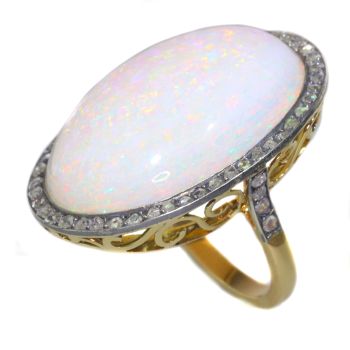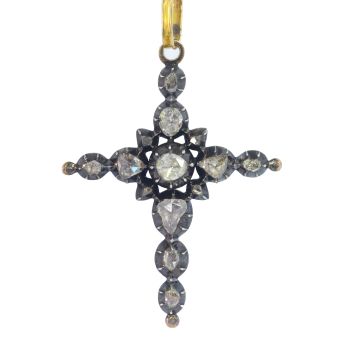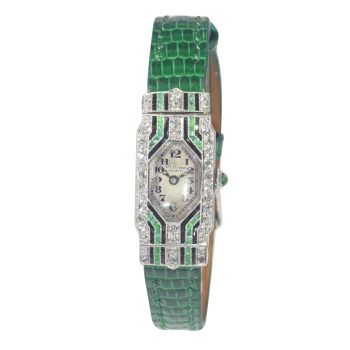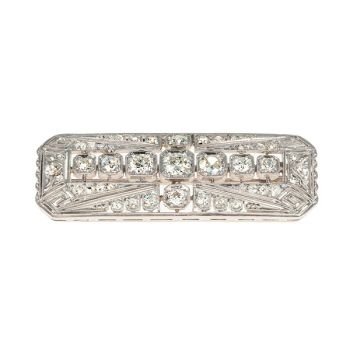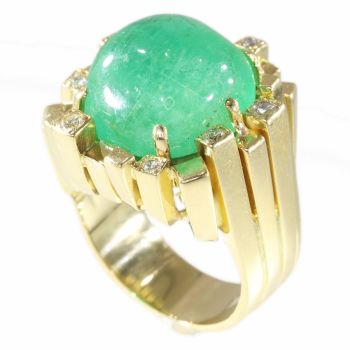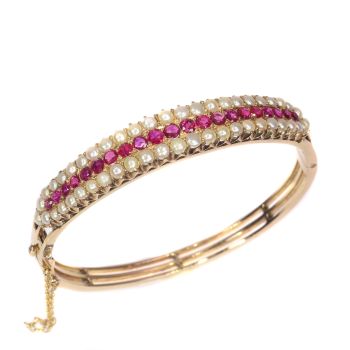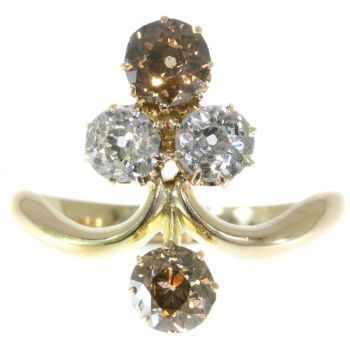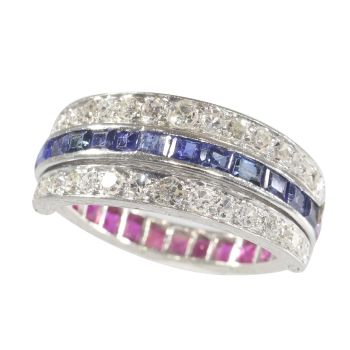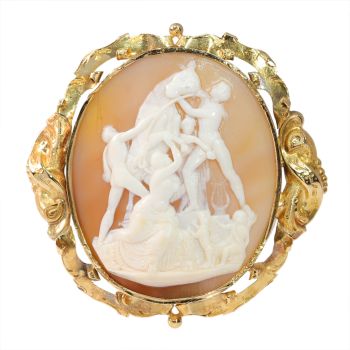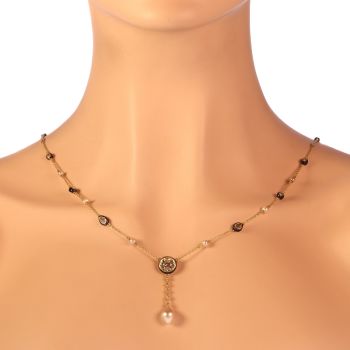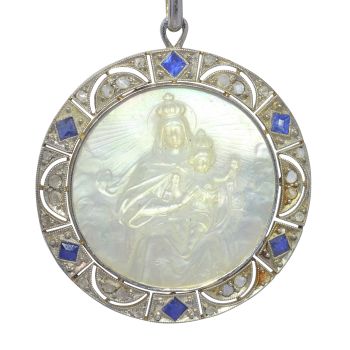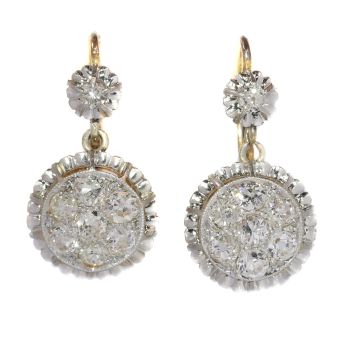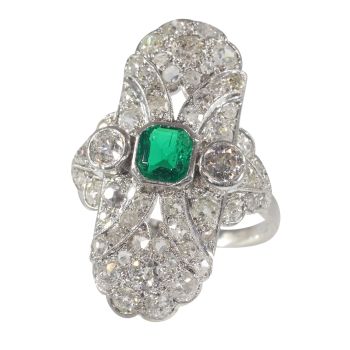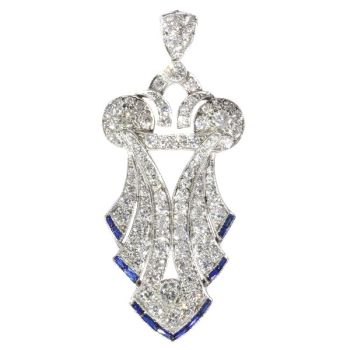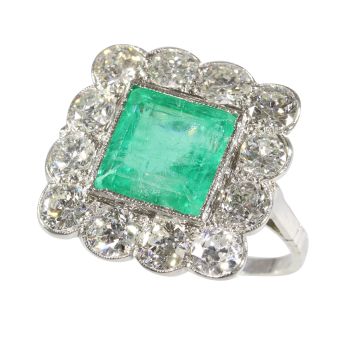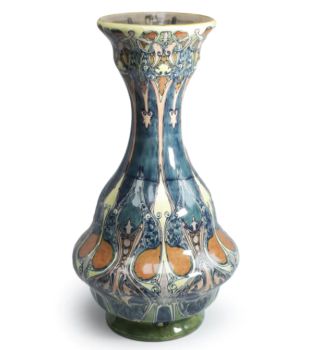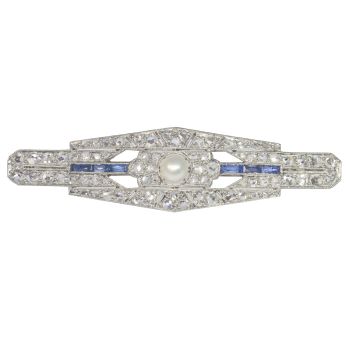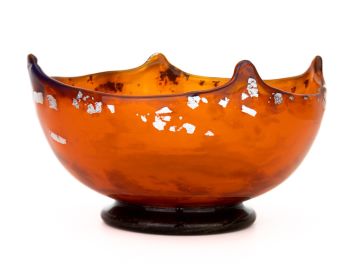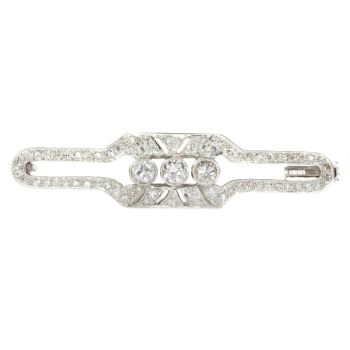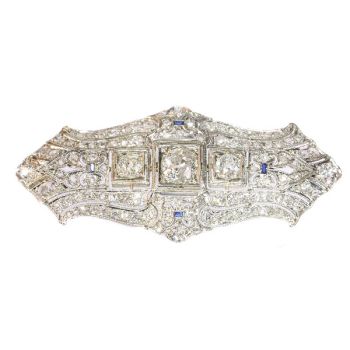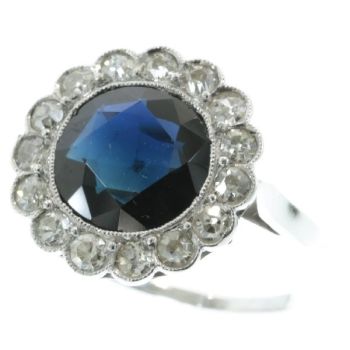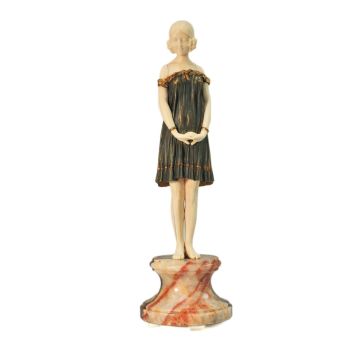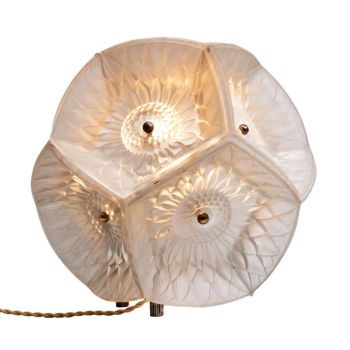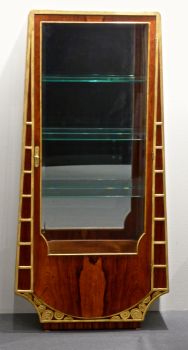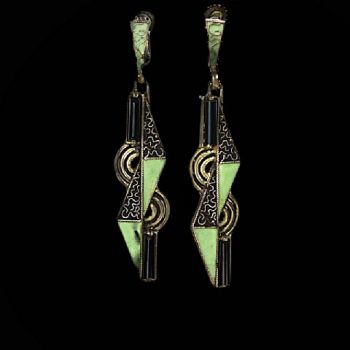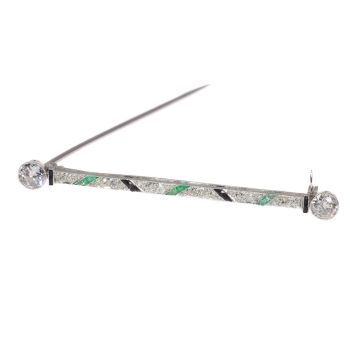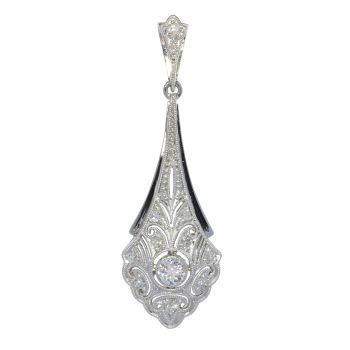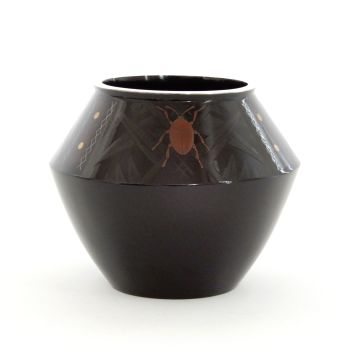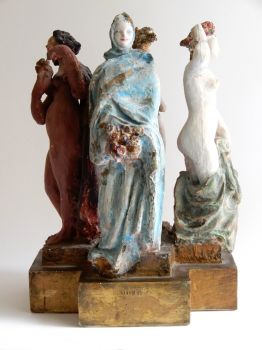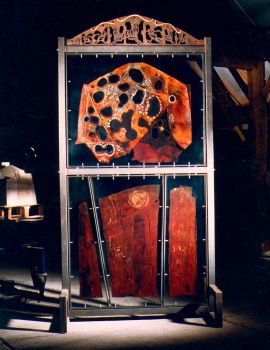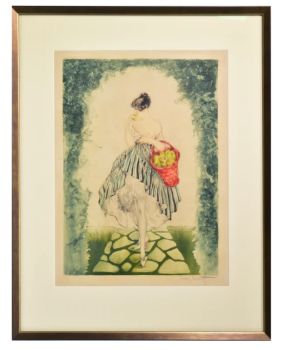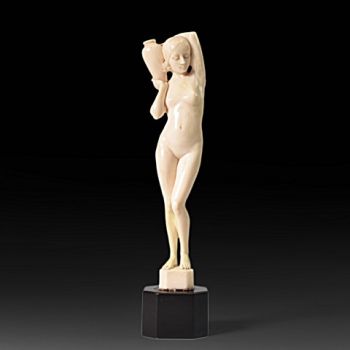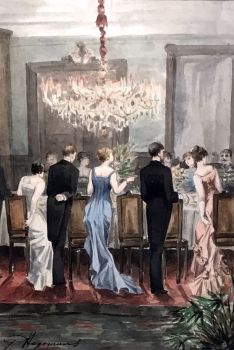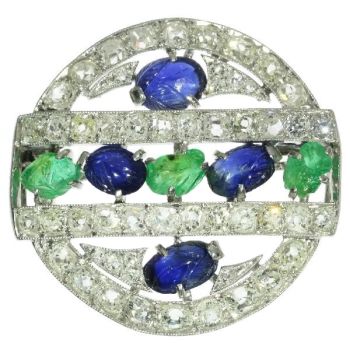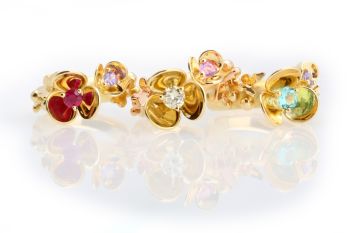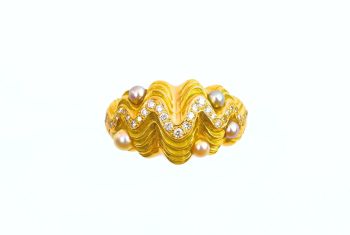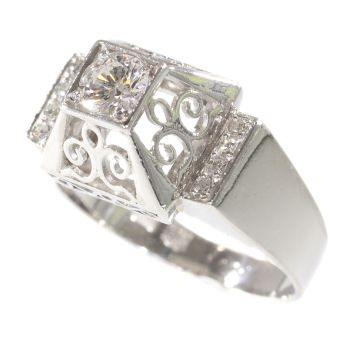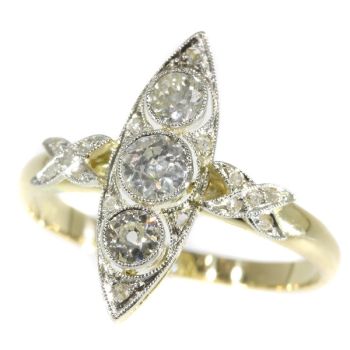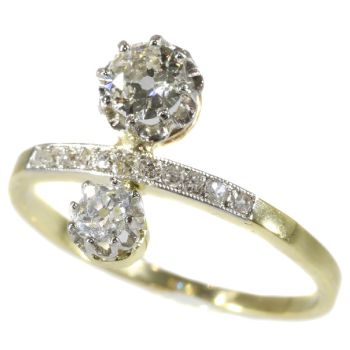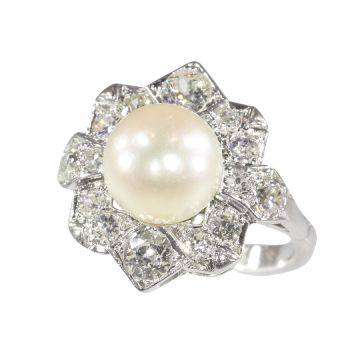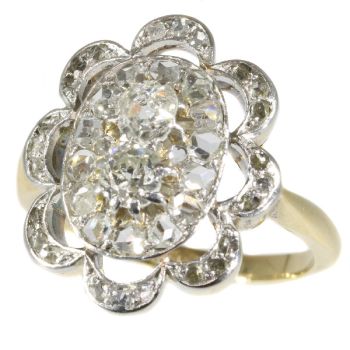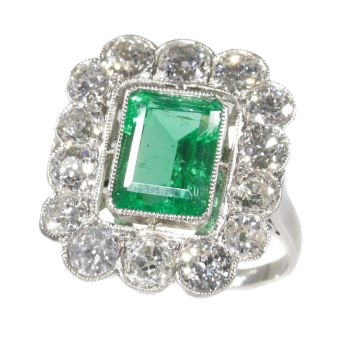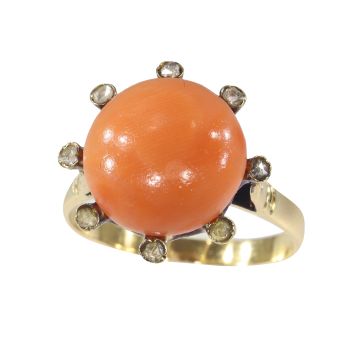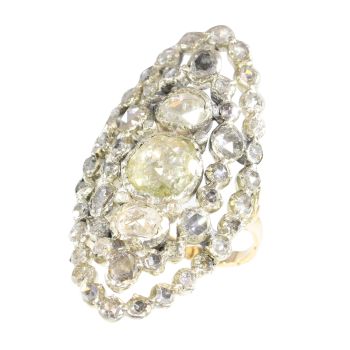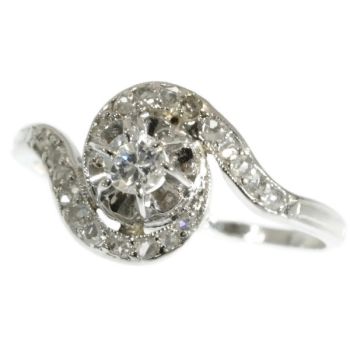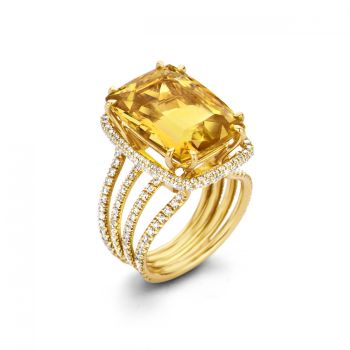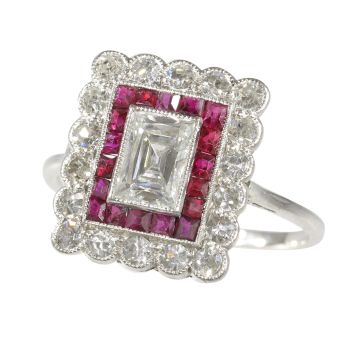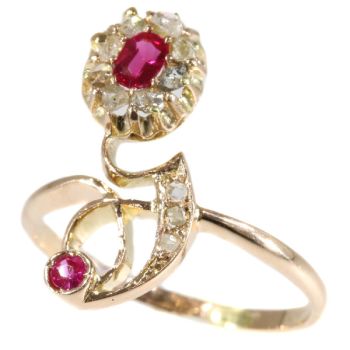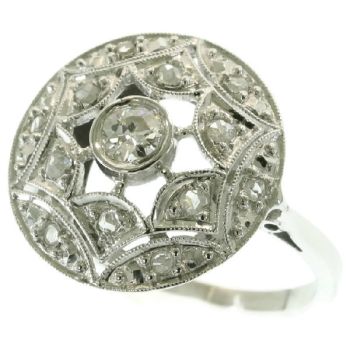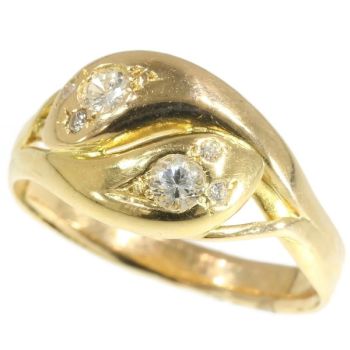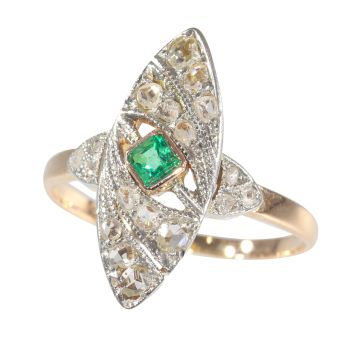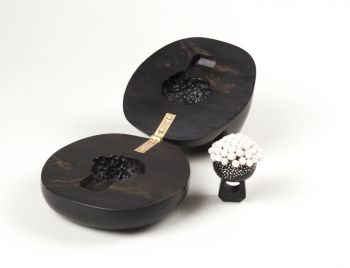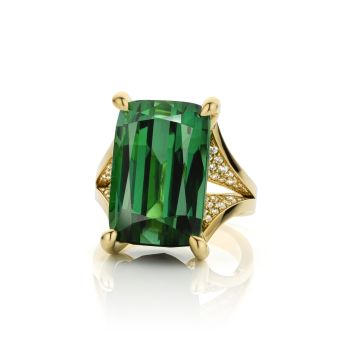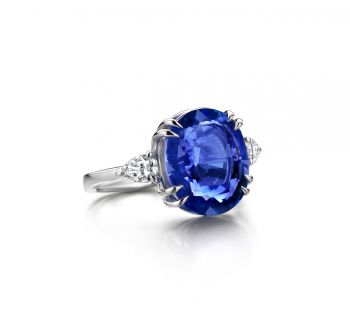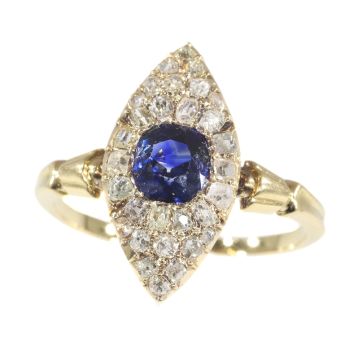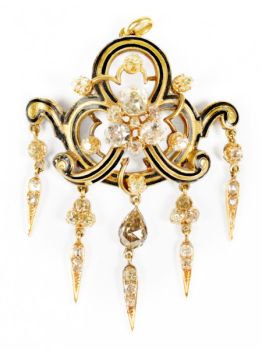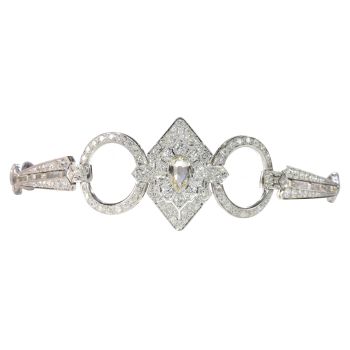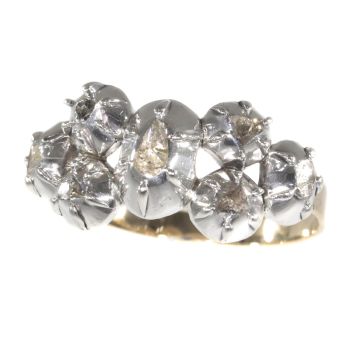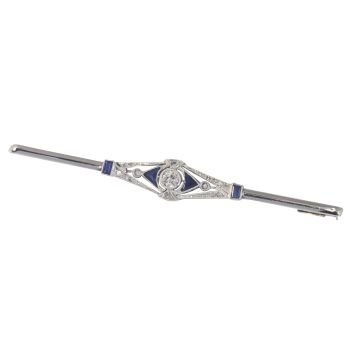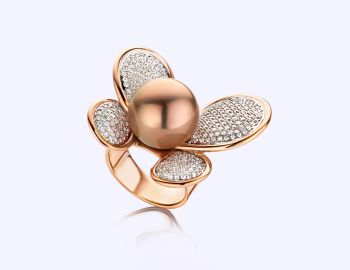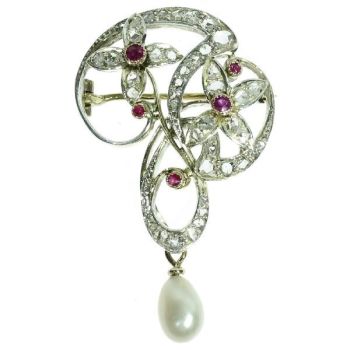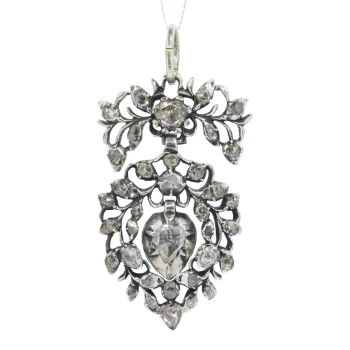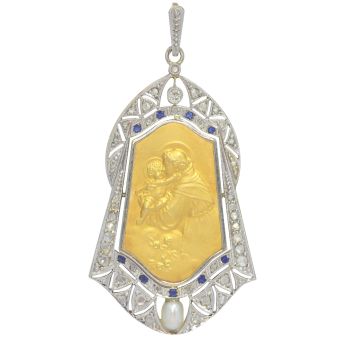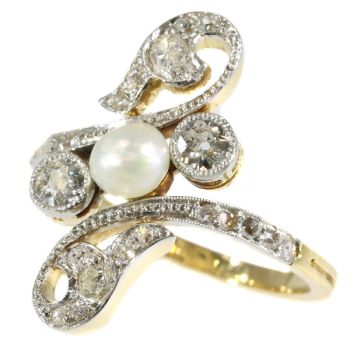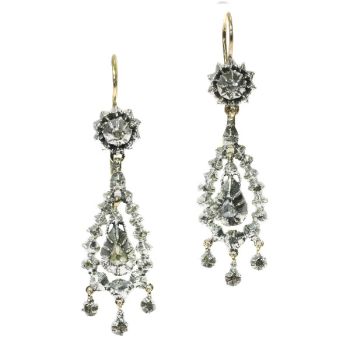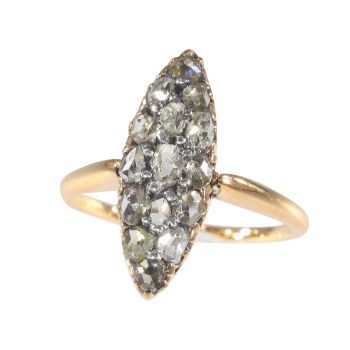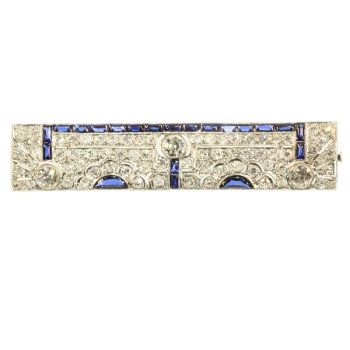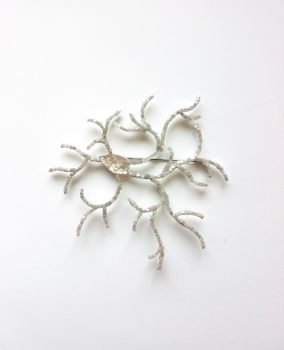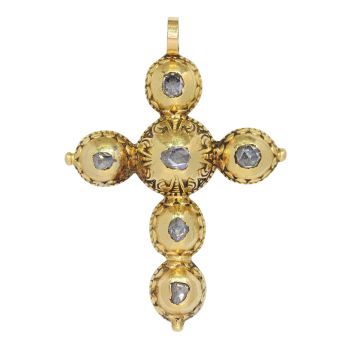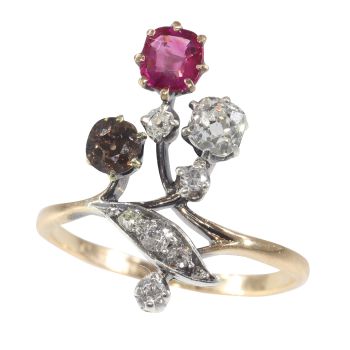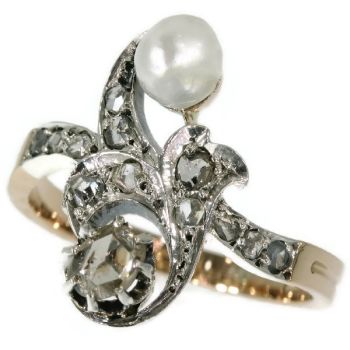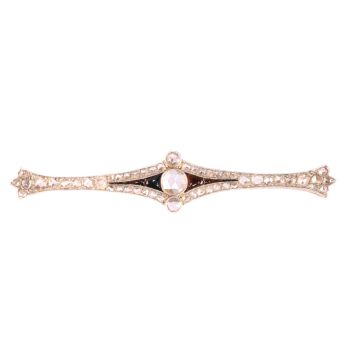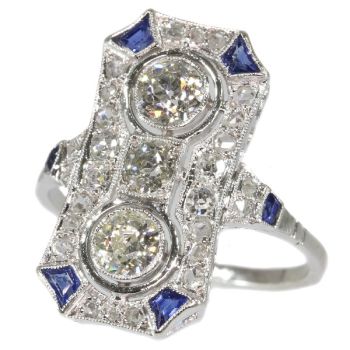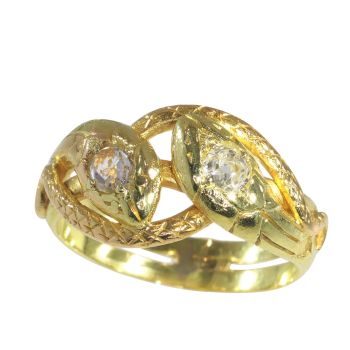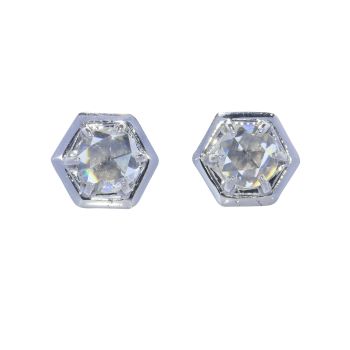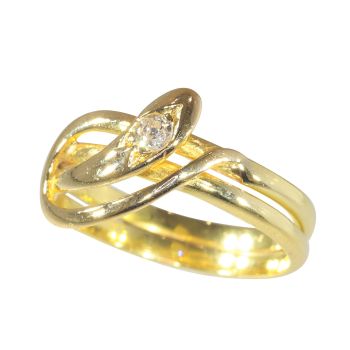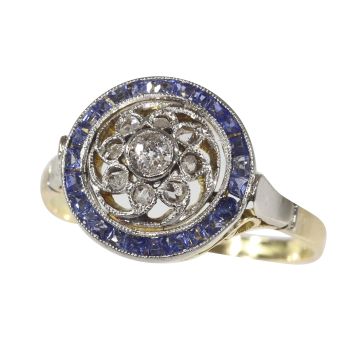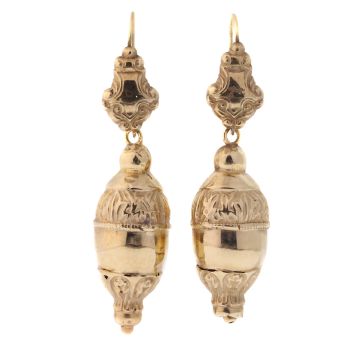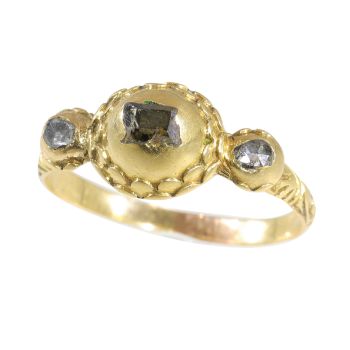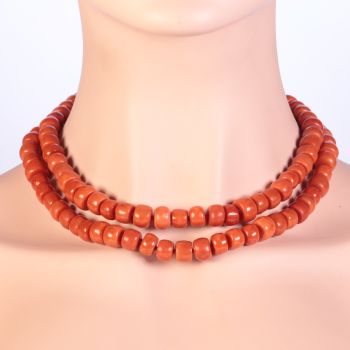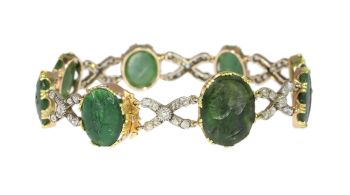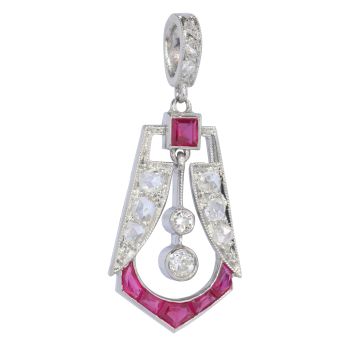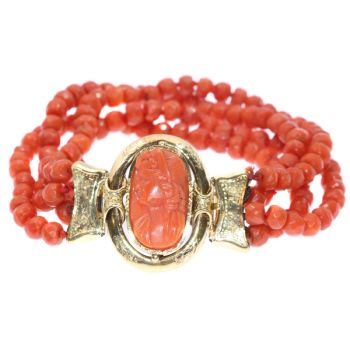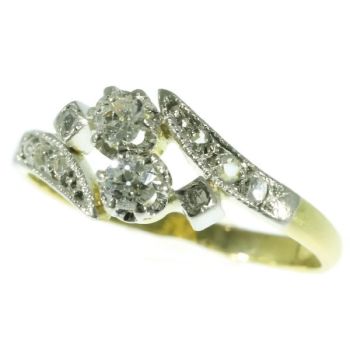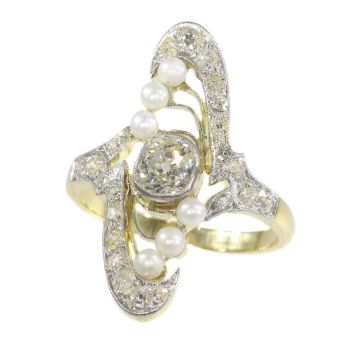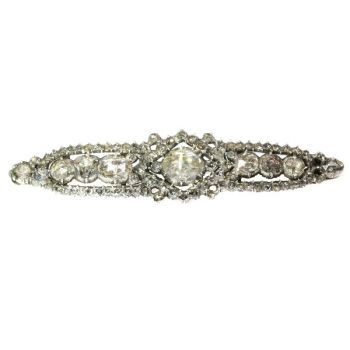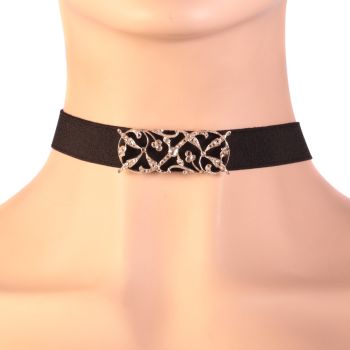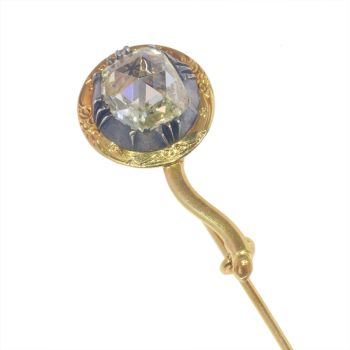Vintage Deco Elegance: 1930s Diamond Ring 1930
Artista Desconhecido
Adin Fine Antique Jewellery
- Sobre arte
A vintage gem from the 1930s, this Art Deco diamond ring captures the transition from the Art Deco to the Interbellum period. It is expertly crafted in two tones of precious metal, primarily 18K yellow gold with white gold or platinum accents. The ringis adorned with 27 diamonds, including one old brilliant cut diamond of approximately 0.60ct and a combined weight of approximately 3.08ct, offering a dazzling display of elegance and craftsmanship. This piece embodies the era's penchant for abstractmotifs and geometric forms, making it not just a ring but a statement of sophisticated style, reflecting the glamour and modernity that defined the period.
Antique jewelry object group
Vintage Deco Elegance: 1930s Diamond Ring
Condition
very good condition
more info on our condition scale
Country of origin
unknown
Style
Between Art Deco and Interbellum - Art Deco is an eclectic artistic and design style which had its origins in Paris in the first decades of the 20th century. The style originated in the 1920s and continued to be employed until after World War II. Theterm "art deco" first saw wide use after an exhibition in 1966, referring to the 1925 Exposition Internationale des Arts Décoratifs et Industriels Modernes that was the culmination of high-end style modern in Paris. Led by the best designers inthe decorative arts such as fashion, and interior design, Art Deco affected all areas of design throughout the 1920s and 1930s, including architecture and industrial design, as well as the visual arts such as painting, the graphic arts and film. At thetime, this style was seen as elegant, glamorous, functional and modern. The interwar period (1918–1939) is understood, within recent Western culture, to be the period between the end of the First World War and the beginning of the Second World War. Thisis also called the period between the wars or interbellum.
See also: Art Deco and Interbellum
more info on styles
Style specifics
This is something between Art Deco and the Interbellum.
Abstract motives and geometrical forms are quite typical for the Art Deco period. Art Deco moved away from the soft pastels and organic forms of its style predecessor, Art Nouveau, and embraced influences from many different styles and movements of the early 20th century, including Neoclassical, Constructivism, Cubism, Modernism, and Futurism. Its popularity peaked in Europe during the Roaring Twenties and continued strongly in the United States through the 1930s. Although many design movements havepolitical or philosophical roots or intentions, Art Deco was purely decorative.
The Interbellum is the period between the two World Wars and one can recognize a transition from the Art Deco style to the Retro style.
Period
ca. 1930
Events & facts of this era, poetry of this era, fashion of this era.
Material
Two tones of precious metal, the main part being 18K yellow gold and the white parts are either white gold or platinum. (touchstone tested)
more info on precious metals
Diamonds
One old brilliant cut diamond with an estimated weight of ± 0.60ct
Four old mine brilliant cut diamonds with an estimated weight of ± 0.72ct
22 old mine brilliant cut diamonds with an estimated weight of ± 1.76ct
Total diamond count
27 pcs.
Total diamond weight
approx. 3.08 crtwith an average colour and clarity G/I, vs/si
All diamond weights, color grades and clarity are approximate since stones are not removed from their mounts to preserve the integrity of the setting.
All diamonds we offer are screened by the I.J.G.C. for whether they are natural or synthetic, and all diamonds in this jewel are 100% guaranteed to be natural.
Birthstones
Diamond is the birthstone (or month stone) for April.
more info on birthstones
Hallmarks
No trace.
more info on hallmarks
Dimensions
top of ring 2,07 cm (0,81 inch) x 2,35 cm (0,93 inch)
see picture with a ruler in millimeters and inches
Weight
5,40 gram (3,47 dwt)
Ring size Continental EU: 52 & 16½ , Size USA: 6 , Size UK: L
Resizing
Free resizing (only for extreme resizing we have to charge).
more info on ring sizes
Adin Reference Nº
23345-0110
Copyright photography
Adin, fine antique jewellery
Additional information
our latest acquisitions
jewelry glossary
wall of fame
visit us in Antwerp
subscribe to our mailinglist
- Sobre artista
Pode acontecer que um artista ou criador seja desconhecido.
Algumas obras não devem ser determinadas por quem são feitas ou são feitas por (um grupo de) artesãos. Exemplos são estátuas dos tempos antigos, móveis, espelhos ou assinaturas que não são claras ou legíveis, mas também algumas obras não são assinadas.
Além disso, você pode encontrar a seguinte descrição:
•"Atribuído a …." Na opinião deles, provavelmente uma obra do artista, pelo menos em parte
• “Estúdio de…” ou “Oficina de” Em sua opinião um trabalho executado no estúdio ou oficina do artista, possivelmente sob sua supervisão
• "Círculo de ..." Na opinião deles, uma obra da época do artista mostrando sua influência, intimamente associada ao artista, mas não necessariamente seu aluno
•“Estilo de…” ou “Seguidor de…” Na opinião deles, um trabalho executado no estilo do artista, mas não necessariamente por um aluno; pode ser contemporâneo ou quase contemporâneo
• "Maneira de ..." Na opinião deles, uma obra no estilo do artista, mas de data posterior
•"Depois …." Na opinião deles uma cópia (de qualquer data) de uma obra do artista
• “Assinado…”, “Datado…” ou “Inscrito” Na opinião deles, a obra foi assinada/datada/inscrita pelo artista. A adição de um ponto de interrogação indica um elemento de dúvida
• "Com assinatura ….”, “Com data ….”, “Com inscrição ….” ou “Tem assinatura/data/inscrição” na opinião deles a assinatura/data/inscrição foi adicionada por outra pessoa que não o artista
Você está interessado em comprar esta obra de arte?
Artwork details
Related artworks
- 1 - 4 / 12
Artista Desconhecido
Japanese art deco lacquervase with Scarab beetle motif1920 - 1950
Preço em pedidoDille Art
1 - 4 / 24- 1 - 4 / 24
- 1 - 4 / 24
Artista Desconhecido
Pulseira de diamante do século 18 com entalhes de 2.000 anos1790
€ 23.000Adin Fine Antique Jewellery
 Com curadoria de
Com curadoria deDanny Bree
1 - 4 / 12








